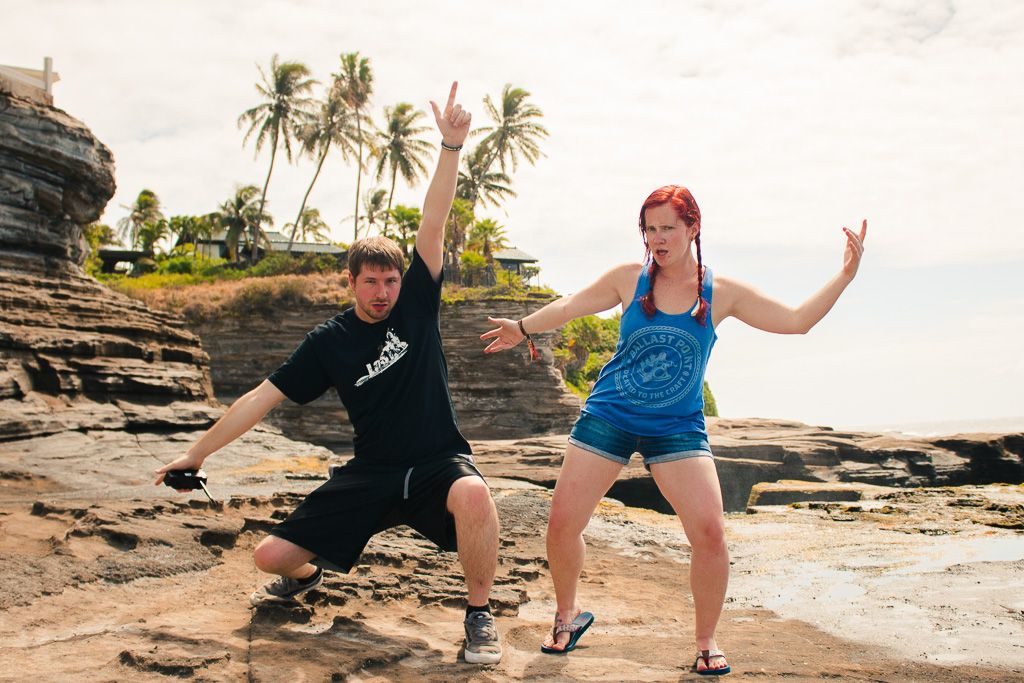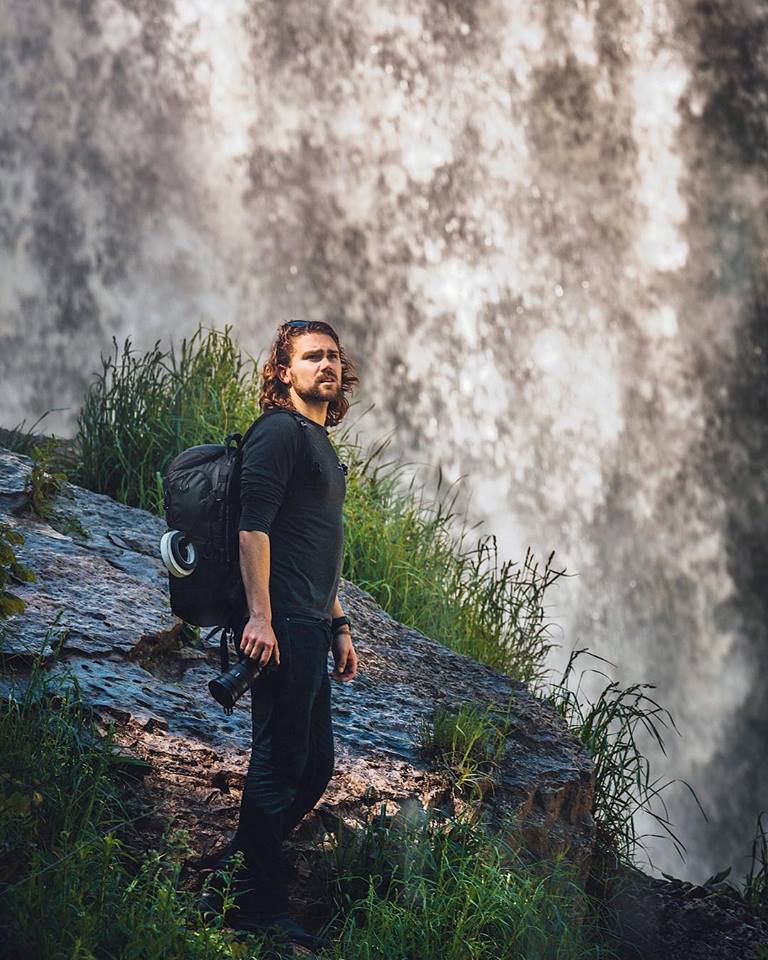Remember back when you were in school? High school, community college, university – whatever. Now imagine that you downloaded an essay from the internet and turned it in as your own. If you got caught with plagiarism, you would probably be expelled, or at least suspended, right?
Now, what if you post a photo someone else took of you from that summer trip last summer with a cutesy caption and a handful of fitting emojis – adorable? Sure! But where’s the credit for that? Who took the photo that is getting you the likes?
For whatever reason, it is commonly accepted that stealing an essay is obviously bad, yet we don’t think twice about posting a photo taken by someone else. To you, it may seem petty. But not giving credit to someone who took their time to frame a photo, snap it, edit it, and send it to you, is just plain rude – not to mention outright stealing.
You see, whoever takes a photo is the legal owner of that photo. Doesn’t matter who posed in it, or whose camera it was; the photographer is the owner – professional or not. Now, I understand that might seem a little much to you, so let me explain.
From a personal standpoint
What it comes down to here is the general concept of right and wrong. Did your mom take a picture of you on that family vacation? Credit there may not really be necessary – unless your mom happens to be a social media guru and wants the credit to help build a following.
But what if a friend took a candid photo of you? They were thoughtful enough to compose the photo and snap it in the perfect moment, capturing the vibe of the setting perfectly. Professional or not, there was an amount of effort and consideration put in. If it’s worth it for you to post, it’s worth it to give credit – and give it correctly! (But more on that later)

Weird photos deserve credit too! Photo by Simon Bucher
Consider this bizarre story that may help put things into perspective. Nature photographer David Slater went on a trip to Indonesia, where a monkey somehow managed to take a handful of selfies with Slater’s unattended camera. Some of the photos ended up being published in multiple magazines, and eventually there was a lawsuit over the photos because technically Slater didn’t own the images since he didn’t press the shutter button. And guess what? The monkey won! The images are now under public domain because Slater does not officially own the images. You can read the full story about it here.
So if it’s enough to go to court over a photo taken by a monkey, it’s pretty insulting for some folks to not even be crediting photos taken by a human. And if you don’t want to give credit because you think it looks lame, at least ask the person who took the photo if that’s okay!
From a business standpoint
Making a name for yourself as a photographer (or anything in the creative genre) these days is a challenge. The field is getting more and more saturated, and building a following organically is difficult. This is why giving photo credit (and giving it correctly) is important.
When you post a photo someone takes and leave credit, it opens the door for that artist by making it simple for other potential clients to find and contact that photographer – or it might just give them a few more fans which is also important! They can click on the tag easily and get in contact with the photographer efficiently. Without a tag, they might just shrug it off and navigate away.
But who am I to say? I’m certainly not a professional photographer, or professional anything for that matter. So don’t take it from me – I reached out to some of the photographers that inspire me and asked for their perspective.
“When someone sees a great or meaningful photo, they think differently and more positively about the person or brand that the photo came from. Credit acknowledges the efforts made by the photographer or artist to create this mental shift. That’s why it’s so important to credit. It allows exposure to that creative decision making process and gives them an opportunity to build an audience and make a living at their craft. Photography is an over saturated market and giving credit increases chances of someone being able to continue working at their craft! Don’t be that person. Credit people. It will pay out in the long run of your career and you will be respected more for it!” – Chris Hau
Hau sums it up perfectly – Not only is credit beneficial for the photographer, but it makes you look more credible and trusted as well. If you’re a business profile who wants someone to take a photo for them, why would they want to help you out if they can see you’re just going to essentially steal their work?
“For me, giving a photographer credit is like listening to a music artist whose song you like. You’re not paying the artist directly, but you’re giving them credit for the great work they did that clearly was good enough for you to share. It takes little time and effort time to give a photograph credit. 99.9% of models or celebs would be nowhere if it wasn’t for the photographer who made them look amazing. Press, marketing material, portfolio, even paparazzi photos. All of them add value to their own brand and showcases them to a larger audience that they probably never would have had access to at first.
That’s not to say their own beauty and talent doesn’t play a huge role, but I’ve known and seen many stunningly beautiful people, who are talented, but never made it because no one’s discovered them. Photographers get a large majority of their work based on referrals and being discovered by their work. So giving credit is the least people can do to show their appreciation for the good work they produce.” – Stilez
In the creative field, we have to look out for each other and support each other. With a photographer/model relationship, you have TFP, which these days are often both sides crediting each other when the work is posted somewhere. Unless you have something prearranged, there is no excuse to not give credit.
“Word of mouth is often the best advertisement. Many photographers, especially starting out, may not have the resources to pay for ads of the like, so the only marketing tool they have is social media. When someone posts a photo that they like to social media and credit the photographer, that is great potential for a possible client viewing it to contact the photographer.” – Michael Gillman
How To Properly Give Credit
When updating your Facebook profile picture, it’s not really necessary to add in credit. Otherwise, here’s an example of proper credit:

Not hidden away in the comments, and not just tagged on the photo. Throw it right there in the caption where it’s easily found with either a cute camera emoji, “PC” for photo credit, or just straightforward how Sam did here. Just anything to signify who took the darn thing! That goes for other social media outlets as well, from Twitter to Facebook. It’s simple, and it takes about the same amount of time as it took for the photographer to snap the photo and send it to you. It’s a fair trade!
I truly believe that there is no malicious intent when someone posts without credit, which is why it’s important to spread the word and inform people why they should actually care! So blogger or not, photo credit is the right thing to do, and the legal thing to do.
Whether you’re a photographer or not, have you ever had to deal with this? Does photo credit matter to you? Let me know why or why not!




Leave A Comment